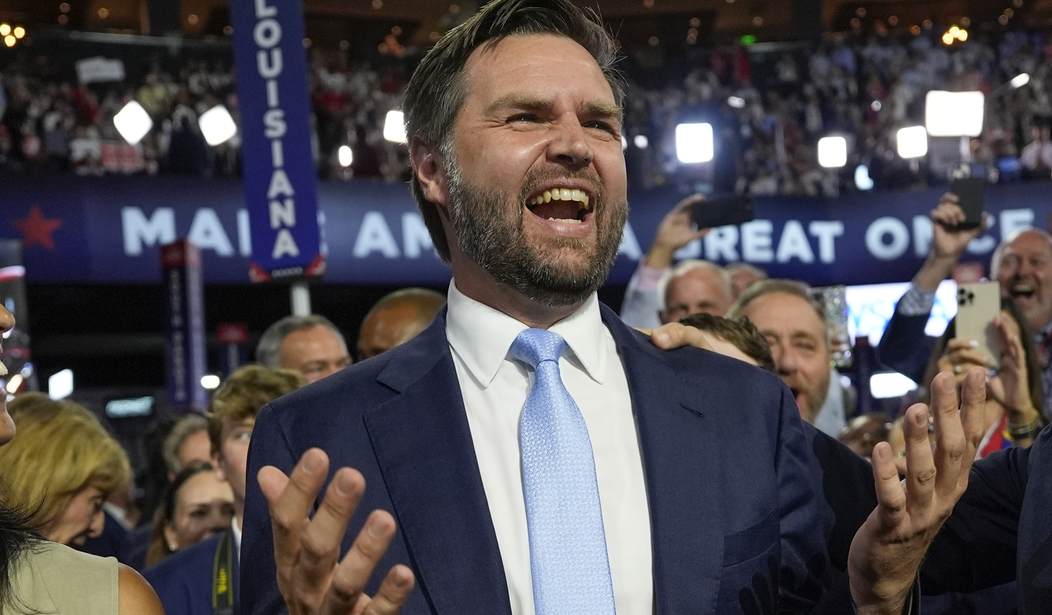When facing an onslaught of sharp, negative PR, there are times when you must issue an unequivocal denial because the allegations are so horrendous that there’s simply no wiggle room. For example, if you own a restaurant and a reporter asks if it’s true that you deep-fry puppies, you can’t say “only a little bit.” You need to issue a flat denial (and, hopefully, have a good explanation for all those missing puppies).
But sometimes, you can roll with the allegations and use them for your own benefit. It’s similar to the principles of judo, Brazilian jiu-jitsu (BJJ), or wrestling, where you exploit your opponent’s momentum by rolling with him. Lots of politicians try to use this technique, but one man did it better than any of them. And if you look closely, there are some eerie similarities between him and JD Vance:
They were both Republicans.
They were both young politicians. At the time, they were actually the same age: 39.
They were both nominees for vice president.
Back in 1952, Richard Nixon was a new, fresh face on the national scene. His reputation was something of a blank slate. Young and ambitious, he was tapped by Eisenhower to be his running mate. But then, a scandal broke that could’ve deep-sixed Nixon’s career before it ever truly began: He was accused of corruption.
Naturally, the more squeamish Republicans quickly called for him to be dropped from the ticket. Meanwhile, the media was happily drumming up anti-Nixon hysteria. The scandal was reaching an apex.
Nixon chose to fight. He had two options:
The first was to deny everything—and to do it loudly, forcefully, and credibly. Moral outrage is a politician's greatest weapon, and when used effectively, it can be devastating. But it’s also high risk and high reward.
Option two was to do some political jiu-jitsu: roll with the allegations and turn them into something better. And that’s exactly what Nixon did.
In a 30-minute televised speech to the American people, Nixon looked the voters in the eye and explained that his family came from modest means, and unlike so many others in politics, he’s not a wealthy man. But he works hard and plays by the rules, and what he’s been accused of isn’t accurate or fair at all. Yet one aspect of the allegations was, it seems, especially true.
He did accept a gift. He admits it! And he REFUSES to return it!
And then Nixon explained that the gift was an adorable black-and-white Cocker Spaniel that his kids named Checkers. His children fell in love with the dog, and come hell or high water, he’ll NEVER give Checkers away.
Instantly, the speech became the fodder of legend. Today, it’s called “The Checkers Speech.”
The airtime for Nixon wasn’t cheap, but it wasn’t exorbitant either. It cost the RNC $75,000 and required him to leave the campaign and travel to a Los Angeles TV studio. But 60 million Americans tuned in on TV and radio – the largest TV audience in history at the time – and the RNC was immediately flooded with an avalanche of popular support for Nixon: “Leave that man alone! Stop trying to steal his kids’ dog!”
It was a political home run.
And it’s the template JD Vance should follow: Roll with the “weird” attack.
Look the camera in the eye. Say, “I’m not at all surprised Kamala Harris thinks I’m weird. After all, I was raised in flyover country – hell, I’m from rural America! – and I realize that’s very strange and foreign to Kamala. In fact, here are some more things they might find weird: I married a woman, have a family, go to church, and think inflation’s out of control. Want more proof I’m a weirdo? I think women should compete in women’s sports, and I don’t believe drag shows are appropriate for children. Isn’t that weird?!
“But on the ‘odd’ chance that you think Kamala Harris is the weird one, we’d welcome your support. Vote Trump-Vance in November.”
Political jiu-jitsu. Roll with the attack. Go directly to the American people.
And roll with the weirdness.










Join the conversation as a VIP Member